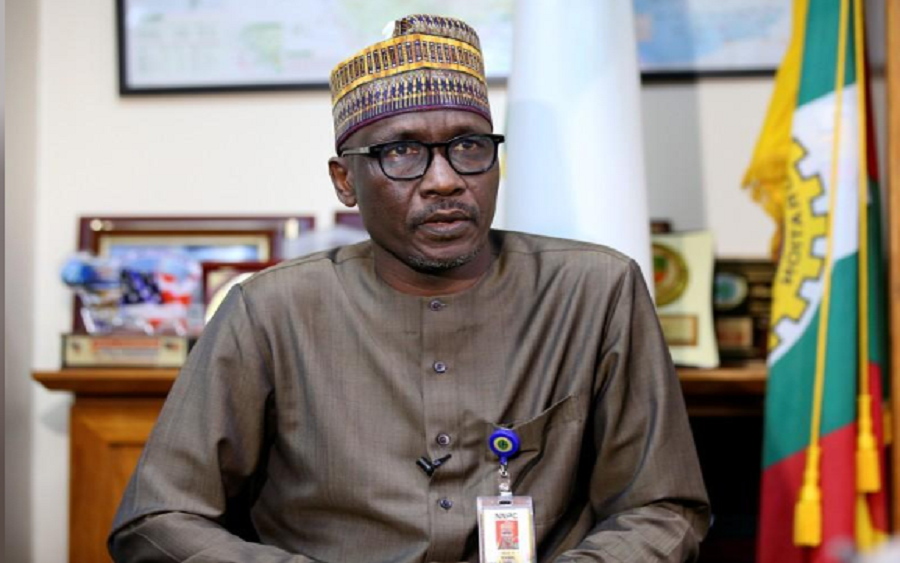The Group Managing Director (GMD) of the Nigerian National Petroleum Corporation (NNPC), Mele Kyari, has revealed why the state oil giant is buying a stake in Dangote Refinery.
The NNPC boss in his explanation said that the decision was driven by the profit potential of the refinery business and the need to have a say in a business of this magnitude, which borders on energy security for Nigeria and Africa, with huge implications for fiscal security of the country.
This was made known by Kyari, while appearing on a Channels Television programme, Sunrise Daily, on Tuesday, June 29, 2021.
READ: Polaris Bank says it has returned NNPC’s $300 million deposit
What the Group Managing Director of NNPC is saying
Kyari said that NNPC is not using government money to buy stakes in the 650,000 barrels per day Dangote Refinery, which is expected to start production in 2022.
He said rather, they are borrowing money from banks on the back of viability, workability and cash flow of the business in addition to guaranteed dividends.
Kyari during the interview said, “Dangote refinery will come into production by 2022. And what that will do is to deliver over 50 million litres of gasoline into, to be specific, our markets. We are also working on our refineries, to ensure that we fix them. We have awarded the contract for Port Harcourt refinery rehabilitation. And ultimately we are going to close that of Warri and Kaduna very soon in July so that all of them will work contemporaneously.
READ: Dangote tells FG to allow only refinery license holders to import petrol
The net effect is that you are going to have an environment where Nigeria becomes the hub of petroleum products and supplies. It’s going to change the dynamics of petroleum supply globally in the sense that the flow is coming from Europe today and it is going to be reversed to some other direction. We will be the supplier for West Africa legitimately and also many other parts of the world.
So the meaning of this is, there is an opportunity that has been thrown at us. And I’m not sure Mr Dangote wants to sell his equity in the refinery. I can confirm that it was at our instance that we started this engagement. He did not want to sell his shares in this refinery.
There is no resource-dependent country that will watch a business of this scale, which has bordered on energy security and has implications for fiscal security of the country, and you don’t have a say. And for us, as a strategy, we started this process long before Dangote started his refinery project. We take equity in very significant businesses that are anchored on the oil and gas operations: fertiliser, methanol plants, modular refineries and some other businesses that we are dealing with.
READ: FG to earn $600 million from Marginal oil fields
For the Dangote refinery, we are not taking government money to buy it, which is the mistake that people are making. We are borrowing on the back of the cash flow of this business. We know that this business is viable, it will work and it will return dividends.
It has a cash flow that is sustainable because refinery business, in the short term, will continue to be sustainable. That’s why banks have come forward to lend to us, so we can take equity in this.
It is to expand our portfolio and also because we are the national oil company, we have the responsibility to guarantee energy security for our country. And there is no way you can have a say, except you have a seat on the board of these institutions. And that’s why anyone that is going to construct a refinery that is in the excess of 50,000 barrels per day, we will talk to them, take equity in it, as long as we have the money to pay for it.’’
What you should know
It can be recalled that last month, NNPC announced plans to acquire a 20% minority equity stake in Africa’s biggest oil refining facility, Dangote Refinery, Lagos, to help further ensure an undisrupted supply of petroleum products across the country when the transaction pulls through.
Dangote Refinery is an integrated refinery and petrochemical project under construction in the Lekki Free Zone in Lagos, Nigeria and is owned by the Dangote Group.
